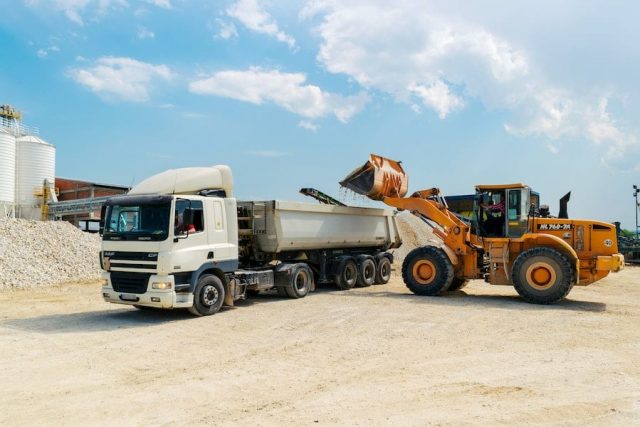Industrial heavy equipment plays a crucial role in various sectors, including construction, manufacturing, mining, and agriculture. These machines have become an integral part of modern industries, significantly boosting productivity and revolutionizing the way work is done. From towering cranes to powerful excavators and robust bulldozers, industrial heavy equipment has transformed the landscape of productivity.
Increased Efficiency
One of the primary ways in which industrial heavy equipment enhances productivity is by increasing efficiency. These machines are designed to perform tasks that would be time-consuming and labor-intensive if done manually. For example, construction companies employ heavy equipment such as excavators to dig foundations and move large quantities of earth quickly and efficiently. The speed and precision with which these machines operate significantly reduce project timelines, enabling companies to complete construction projects in record time. By automating repetitive and physically demanding tasks, heavy equipment allows workers to focus on more skilled and complex activities, further optimizing productivity.
Larger Workloads
Moreover, industrial heavy equipment enables the handling of larger workloads, resulting in increased output. In manufacturing plants, heavy machinery such as assembly line robots and automated conveyor systems facilitate mass production. These machines handle heavy components, perform precise movements, and operate at high speeds, resulting in faster production cycles. By increasing the volume of goods produced within a given timeframe, industrial heavy equipment boosts productivity and meets the demands of a growing market.
A Boost In Productivity
In addition to efficiency and output, industrial heavy equipment enhances workplace safety, leading to increased productivity. Many tasks in industries like construction and mining are hazardous and pose risks to human workers. However, with the deployment of heavy equipment, workers can carry out their duties from a safe distance. For instance, in mining operations, remote-controlled drilling rigs and loaders allow operators to operate machines from a secure control room, eliminating the dangers associated with working in underground mines. By reducing the risk of accidents and injuries, heavy equipment creates a safer working environment, which translates into higher productivity due to reduced downtime and absenteeism.
Better Precision
Furthermore, industrial heavy equipment contributes to improved precision and quality in various industries. Machines such as CNC (Computer Numerical Control) machining centers and 3D printers offer unparalleled accuracy and repeatability in manufacturing processes. These machines produce intricate components and complex designs with minimal errors, ensuring high-quality output. With heavy equipment, industries achieve consistent and precise results, reducing waste and rework. The ability to produce high-quality products in large volumes elevates customer satisfaction, strengthens brand reputation, and increases market competitiveness.
Machine Maintenance
The maintenance and monitoring of industrial heavy equipment have evolved with technological advancements, resulting in improved productivity. Equipment manufacturers now incorporate sensor technology and data analytics to monitor machine health, predict breakdowns, and schedule maintenance proactively. This approach minimizes unexpected downtime and allows for planned maintenance during non-critical periods. Additionally, the integration of telematics systems enables real-time monitoring of equipment performance, fuel consumption, and operator efficiency. By optimizing maintenance and monitoring practices, industrial heavy equipment maximizes uptime and prolongs machine lifespan, contributing to increased productivity and cost-effectiveness.
Industrial heavy equipment plays a vital role in boosting productivity across various industries. As industries continue to evolve and demands grow, the importance of industrial heavy equipment will only increase. By harnessing the power of these machines, businesses can achieve higher productivity, optimize resource utilization, and stay competitive in a rapidly changing global market.













